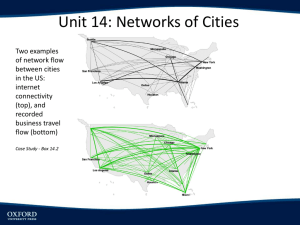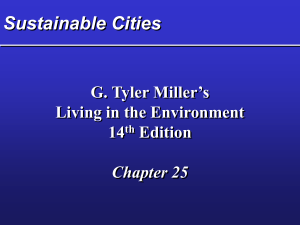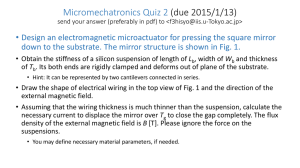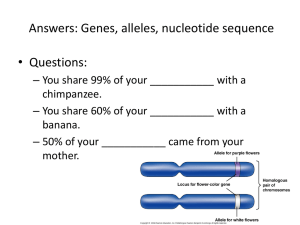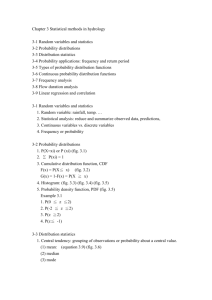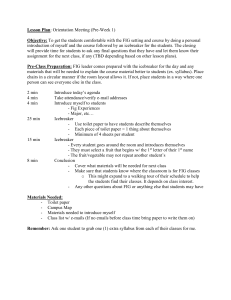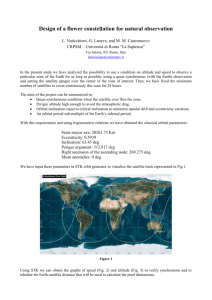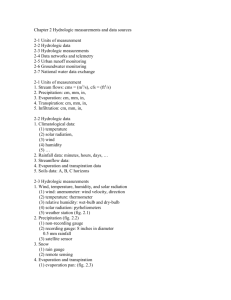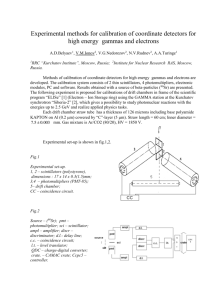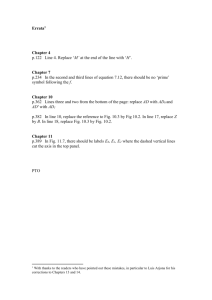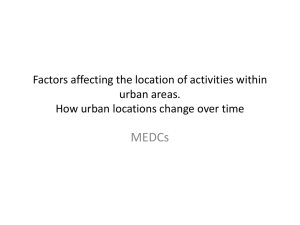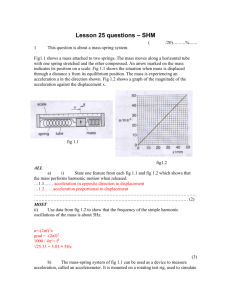Rapid Forest Triage by Sub
advertisement
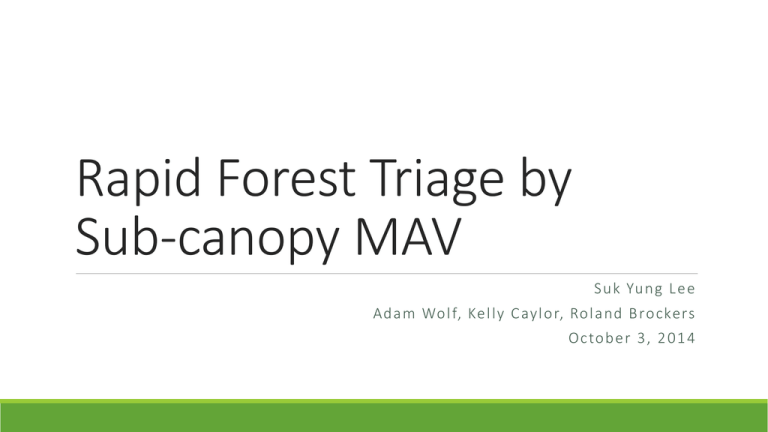
Rapid Forest Triage by Sub-canopy MAV S u k Yu n g L e e A d a m Wo l f, Ke l l y Cay l o r, Ro l a nd Bro c kers Oc to b e r 3 , 2 0 1 4 Overview • Project objective: Fly a quadcopter through a forest and survey trees autonomously • Rationale: • • • • Microclimate and local competition Determine biomass and carbon sink potential Cost and time effective method Branch applications (surveillance, etc) • Combines fields such as computer vision, controls, and data processing* Fig 1 – Concept of a forest survey conducted by an MAV Manual Surveying • Formulate a ground truth with a manual survey • • • • • Rectangular survey grid Diameter at breast height Tree locations Tree heights Canopy radius and area y2 a2 x2 b1 a1 DBH x1 • Metadata • • • • Number of trees Grid size Survey date & location GPS coordinates of four grid corners (w/ error margins h o y1 β Origin y Fig 2 – Measuring of tree location, diameter, and height GPS Error • Polaris Navigation, GPS Status Android apps • Averaged an error margin of ±3.048 meters, but varied • Navcom Technology – satpredictor • Number of satellites available • Dilution of precision • Target specific times of day for best accuracy and precision Fig 3 – Satellite Availability and DOP (Navcom) Fig 4 – Geometric Error Ecology Maps • Neighborhood Basal Area Density • Nearest Tree • DBH of Nearest Tree • Neighborhood Height • Standard Deviation of Neighborhood Height • Average Distance within Neighborhood Fig 5 – Nearest Tree Map (m) Biomass • 𝐴𝐺𝐵 = 𝐹 ∗ 𝜌 ∗ • • • • 𝜋𝐷2 4 ∗ 𝐻 Chave et al 2005 F = 0.06, broadleaf 𝜌 = 0.59, Quercus agrifolia 19,895.54 kg • Lower limit • Cone geometry • 11,053.08 kg • Upper limit • Cylinder geometry • 33,159.23 kg Environmental Sensor board • Sensor board, operating in ROS using the asctec_mav_framework • • • • • • Time stamp Relative humidity IR thermometer Thermistor Short-wave radiation Normalized difference vegetation index1 Fig 5 – Environmental Sensor Board Readings Website • Demonstration Future Considerations • Above canopy survey • Autonomous height and canopy measurements • More effective biomass estimate2 • Leaf area index • Density of plant canopies • Primary photosynthetic production • Evapotranspiration • Image processing upward-facing hemispherical photos Fig 7 – Upward facing hemispherical shot of canopy Acknowledgments • Adam Wolf • Kelly Caylor • Roland Brockers • Jet Propulsion Laboratory • Princeton Environmental Institute Citations References 1 - http://en.wikipedia.org/wiki/Normalized_Difference_Vegetation_Index 2 - Chave et al. 2005 Images Fig 1 - http://www-robotics.jpl.nasa.gov/ Fig 2 - http://oregonstate.edu/ Fig 4 – Richard Langley, http://www.iastate.edu/ Fig 7 - Stuart B Weiss
